|
I'm an AI researcher working on foundation models. Before starting my career as an AI researcher in industry, I earned my Ph.D. degree in Electrical and Computer Engineering (Machine Learning track) from the University of Michigan, Ann Arbor. My research focuses on LLMs, reinforcement learning, alignment, trustworthy ML, and AI for science. I'm open to collaboration with aspiring researchers and I frequently mentor students on AI research projects. If you find shared research interests and would like to discuss collaboration opportunities, please feel free to contact me via email! Email / LinkedIn / Google Scholar / GitHub |
|
|
[Dec-2023] Our work Graph Neural Prompting with Large Language Models is accepted by AAAI-24. [April-2023] We announced OptoGPT, the first foundation model for optical multilayer thin film design. Check out the arXiv preprint! [April-2023] I will serve as a reviewer for NeurIPS 2023 and Synergy of Scientific and Machine Learning Modelling Workshop @ ICML 2023! [Feb-2023] I will serve as a reviewer for ICML 2023! [Feb-2023] Our survey article Structural color generation: from layered thin films to optical metasurfaces has been published on Nanophotonics! [Aug-2022] Our paper Dynamic prediction of work status for workers with occupational injuries: assessing the value of longitudinal observations has been published on Journal of the American Medical Informatics Association! [Aug-2022] Our AWS Machine Learning blog on real-time fraud detection is online. [July-2022] I served as a session chair in ICML 2022. [Mar-2022] I joined Amazon ML Solutions Lab as a Research Scientist. [Jan-2022] I defended my Ph.D. thesis Learning to Optimize: Applications in Physical Designs and Manufacturing on Jan 14th, 2022. |
The full list of my publications can be found on Google Scholar.
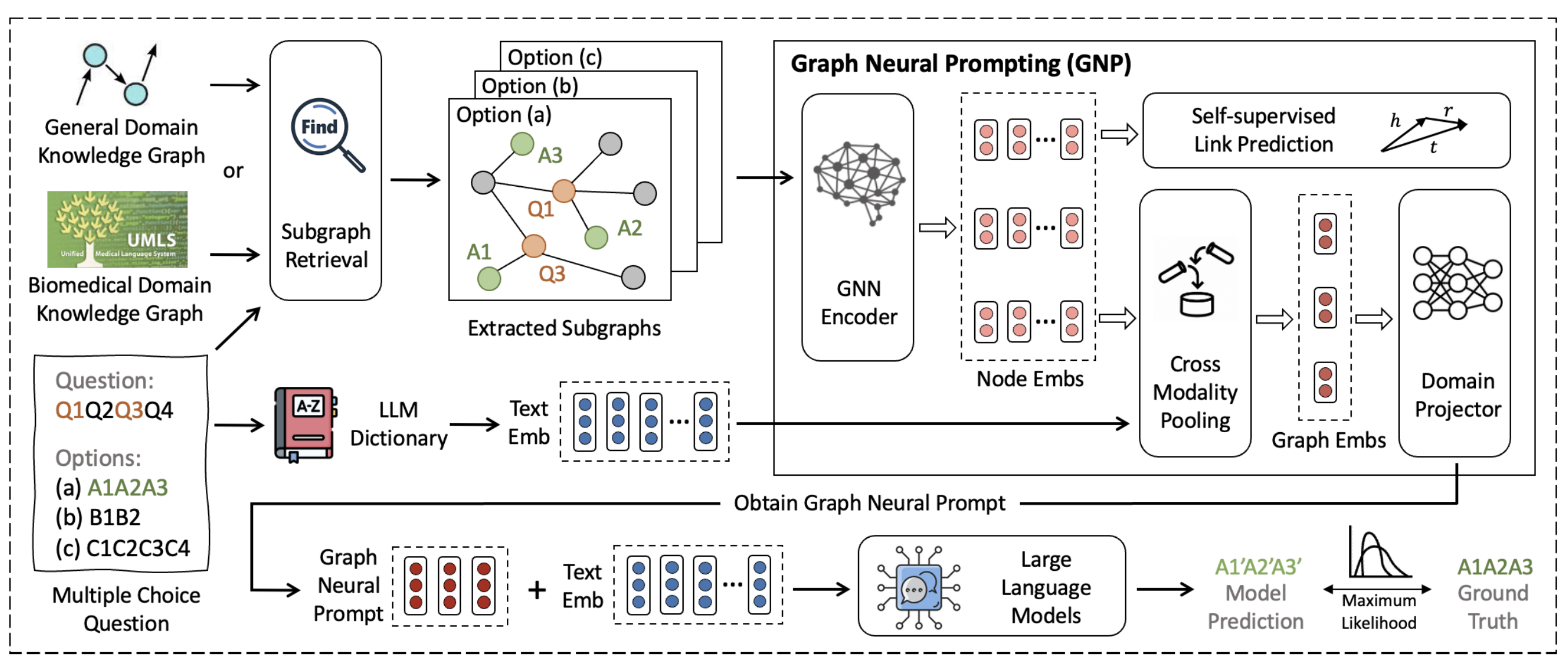
|
Yijun Tian, Huan Song, Zichen Wang, Haozhu Wang, Ziqing Hu, Fang Wang, Nitesh V.Chawla, Panpan Xu AAAI, 2024 arxiv A knowledge graph prompting method for large language models to improve their commonsense and biomedical reasoning performance. |
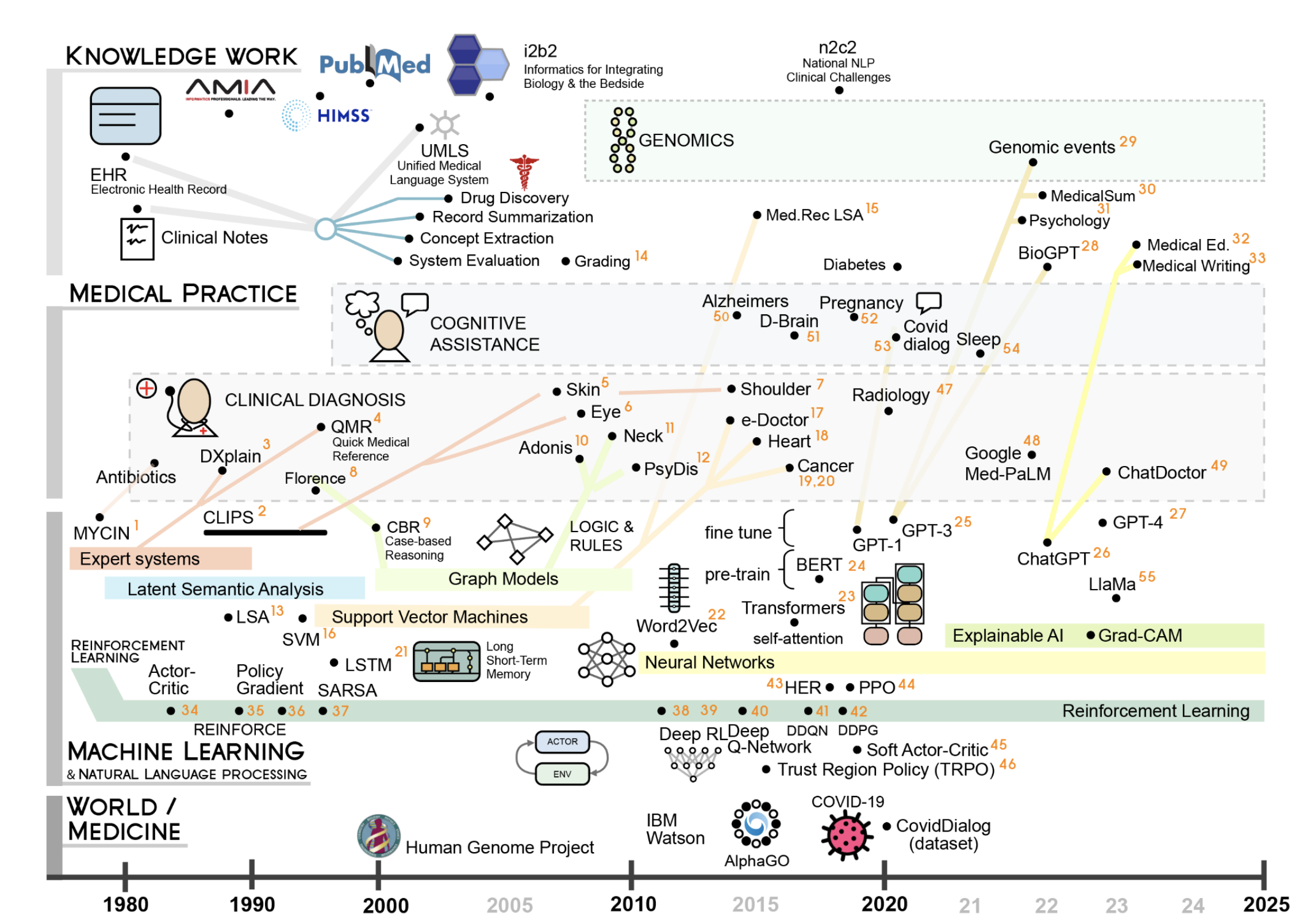
|
Ying Liu, Haozhu Wang, Huixue Zhou, Mingchen Li, Yu Hou, Sicheng Zhou, Fang Wang, Rama Hoetzlein, Rui Zhang under review, 2023 arxiv A comprehensive review of reinforcement learning applied to NLP and its healthcare applications. |

|
Zhe Wang, Haozhu Wang, Yanjun Qi NeurIPS Workshop on Robot Learning, 2023 paper We developed an hierarchical prompting method for transformer-based reinforcement learning models to enable efficient few-shot policy adaptation. |
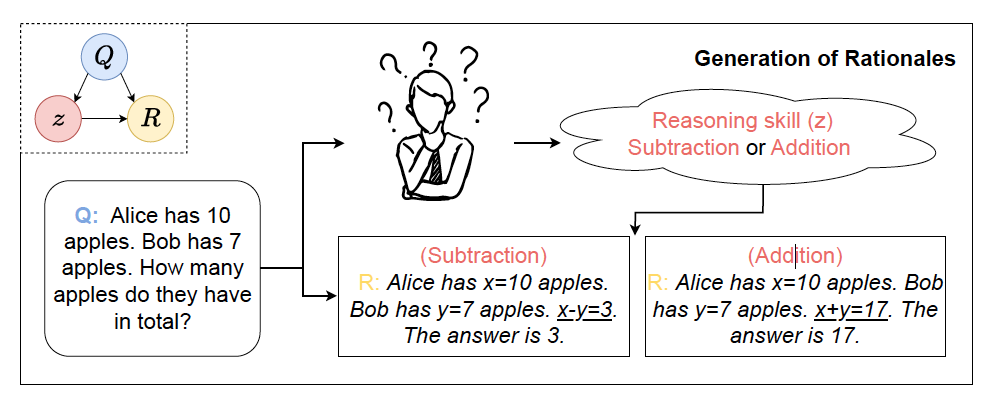
|
Zifan Xu, Haozhu Wang, Dmitriy Bespalov, Yanjun Qi NeurIPS Workshop on Robustness of Zero/Few-shot Learning in Foundation Models, 2023 paper We developed an unsupervised method for discovering latent skills to guide the demonstration selection for in-context learning with large langauge models. |
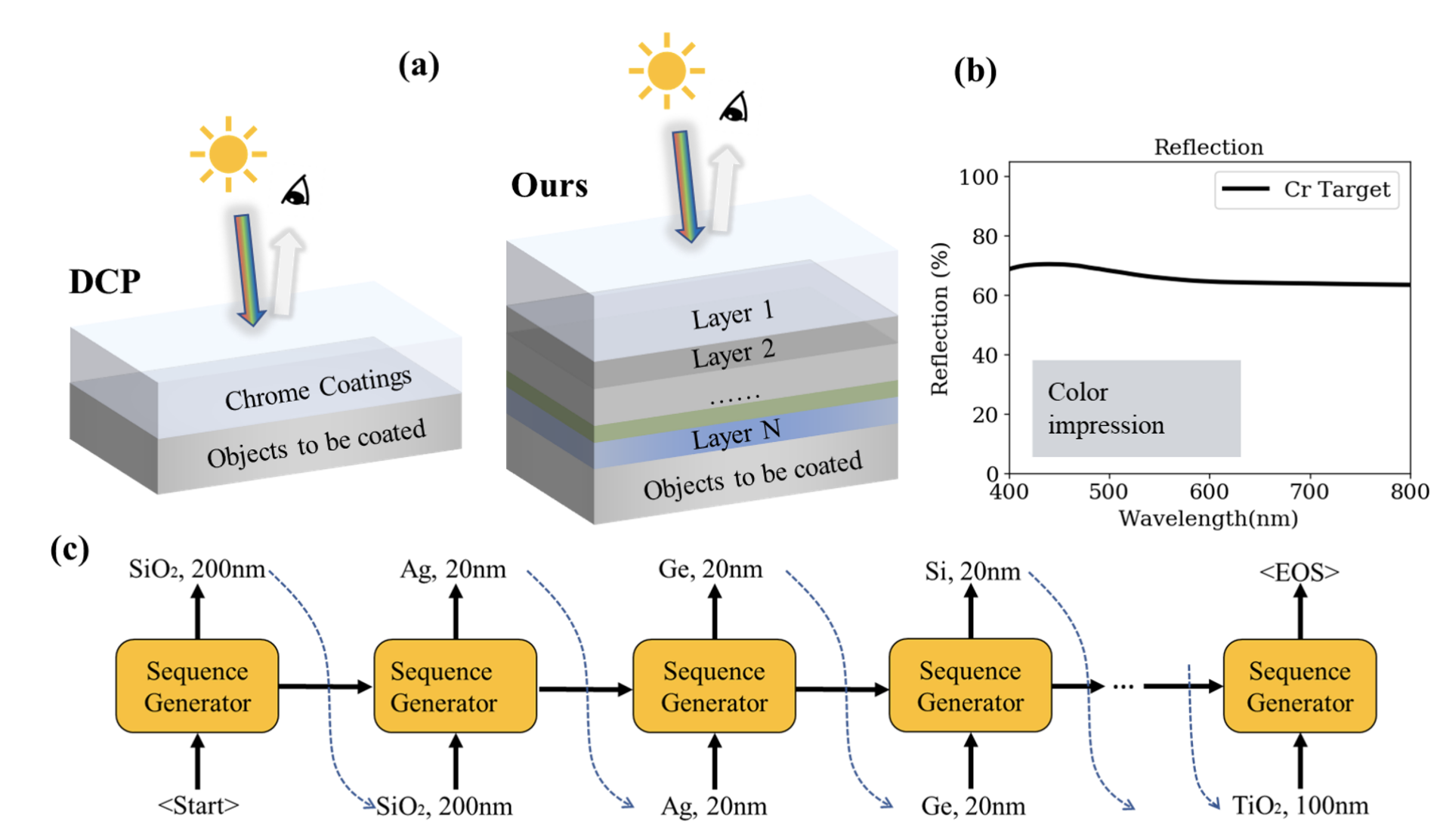
|
Taigao Ma, Anwesha Saha, Haozhu Wang, L. Jay Guo, NeurIPS AI for Science Workshop, 2023, [Oral, selection rate: 10/150=6.7%] OpenReview Using reinforcement learning, we designed and fabricated two multilayer thin film structures that can mimic the visual appearance of decorative chrome plating, serving as a environmentally friendly and multi-functional replacement. |
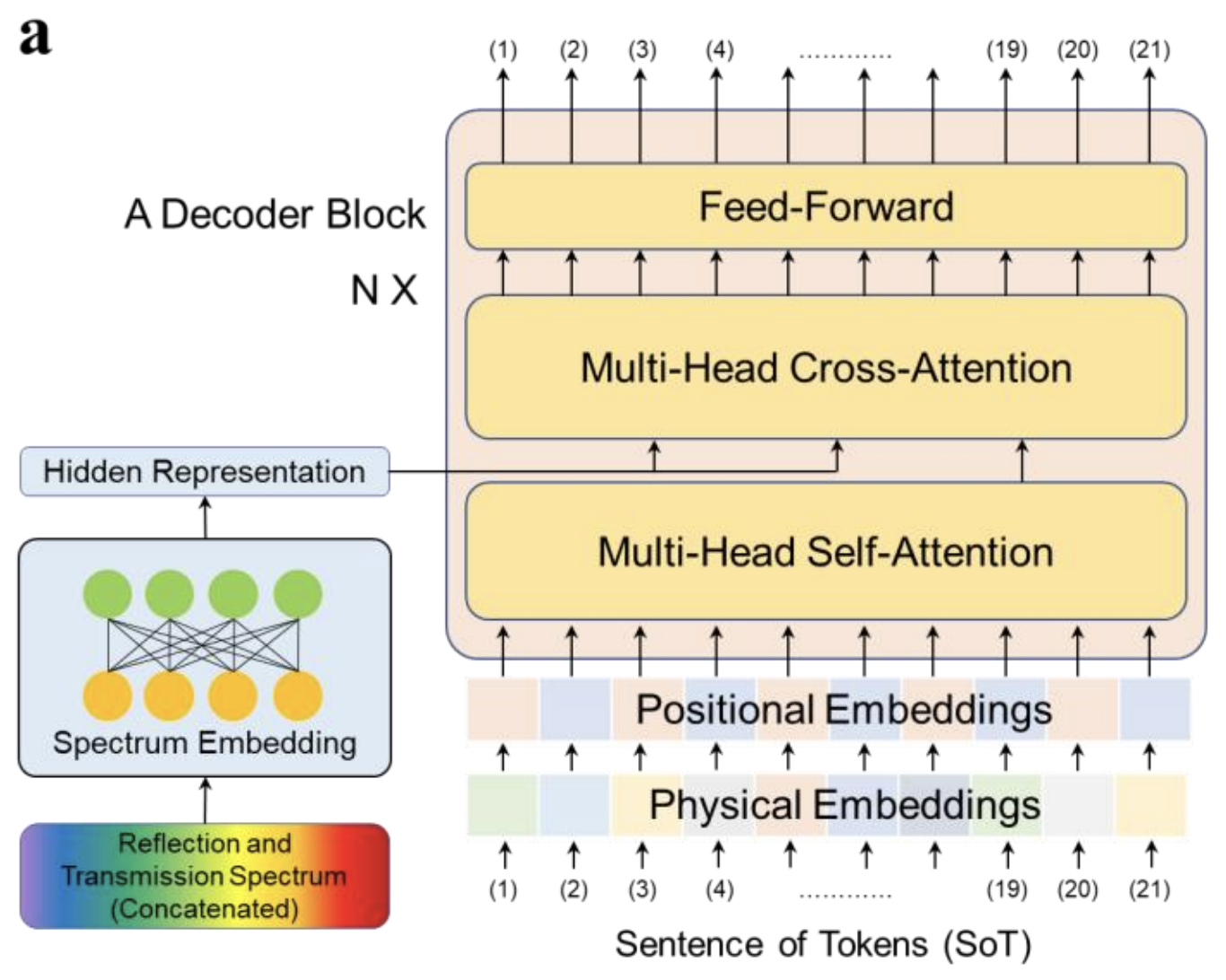
|
Taigao Ma, Haozhu Wang, L. Jay Guo under review, 2023 arXiv We developed OptoGPT, the first foundation model for optical thin film structure inverse design. After being trained on a large dataset of 10 million optical thin film designs, OptoGPT demonstrates remarkable capabilities including: 1) autonomous global design exploration, 2) efficient designs for various tasks, 3) the ability to output diverse designs, and 4) seamless integration of user-defined constraints. We believe OptoGPT is a major leap towards accelerating optical science with foundation models. |
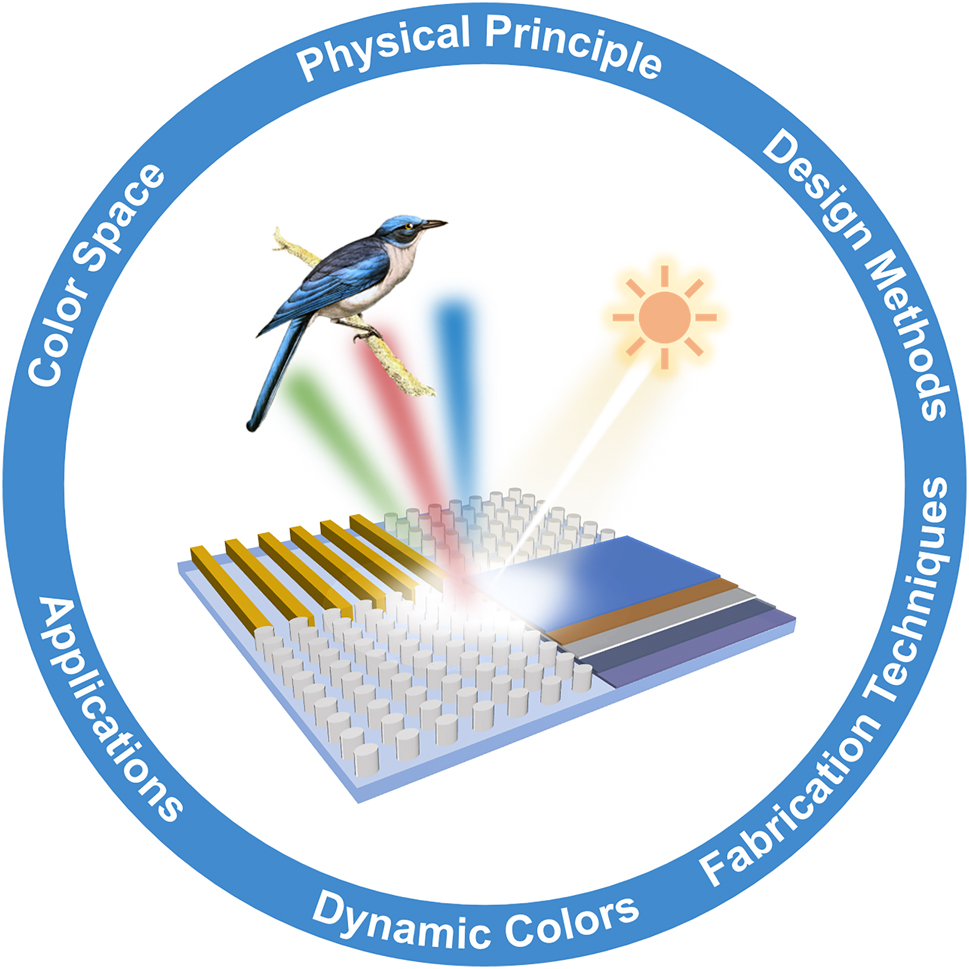
|
Danyan Wang, Zeyang Liu, Haozhu Wang, Moxin Li, L. Jay Guo, Cheng Zhang Nanophotonics, 2023 paper Comprehensive survey of the structural color research field. I provided a discussion of applying machine learning to structural color device designs. |
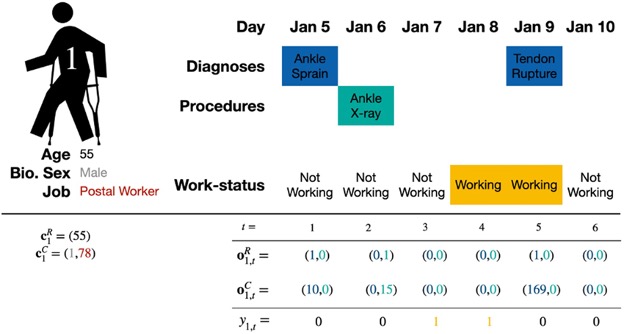
|
Erkin Ötleş, Jon Seymour, Haozhu Wang, Brian T Denton Journal of the American Medical Informatics Association, 2022 paper We developed a forecasting model to predict return-to-work after occupational injuries based on longitudinal claim data. The model may allow case managers to better allocate medical resources and help speed up patients' recover process. |
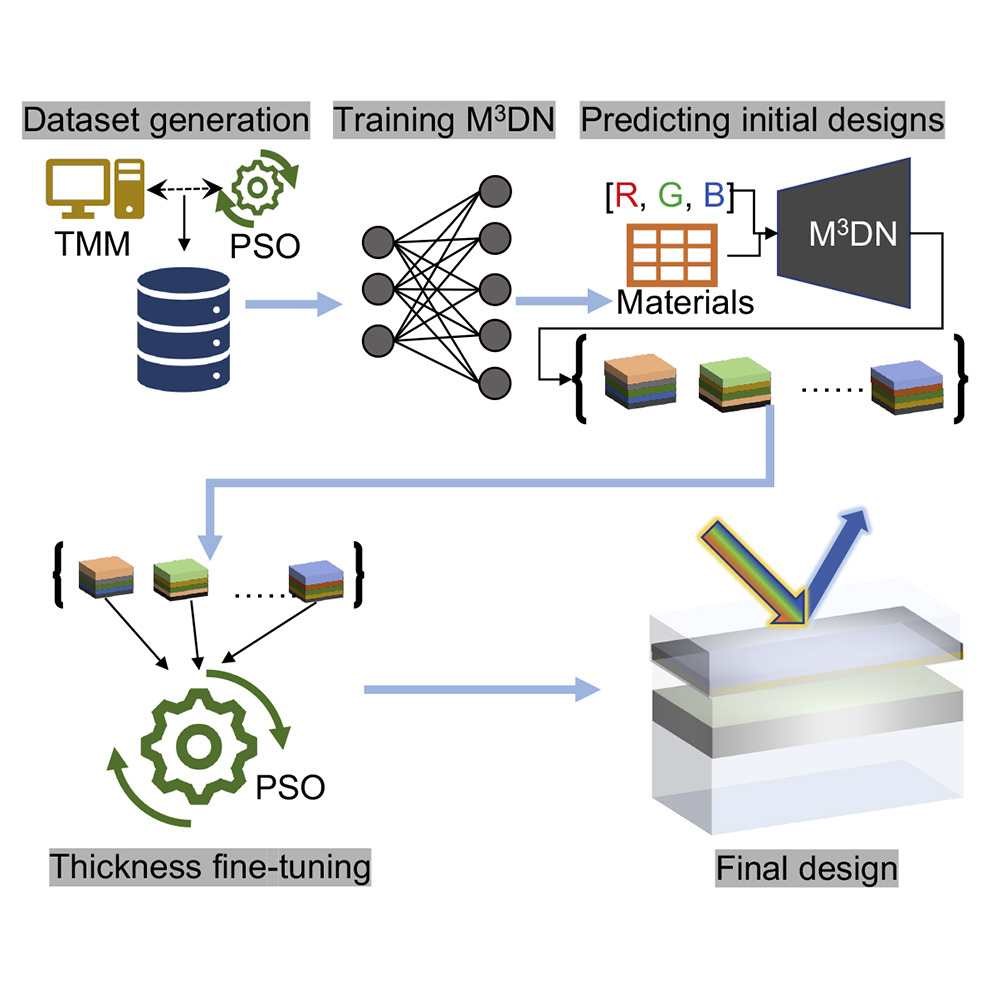
|
Haozhu Wang, L. Jay Guo iScience, 2022 paper/ code We propose a hybrid machine learning and optimization method that combines mixture density networks and particle swarm optimization for accurate and efficient structural color inverse design. |
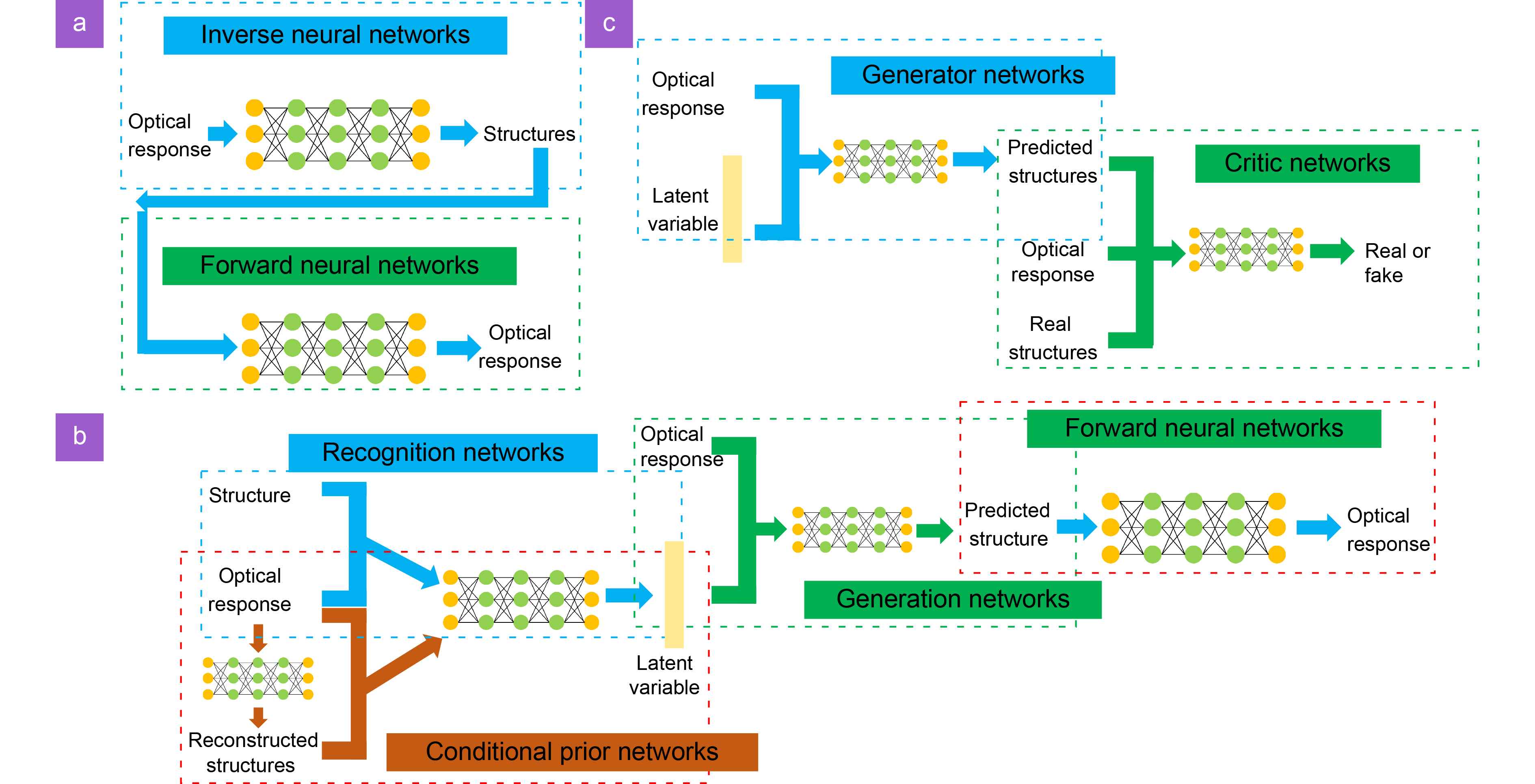
|
Taigao Ma, Mustafa Tobah, Haozhu Wang* , L. Jay Guo* Opto-Electronic Science, 2022 (*: correspondence) paper We provide extensive benchmarking results on accuracy, diversity, robustness for commonly used deep learning models in nanophotonic inverse designs. The findings can help researchers select models that best suit their design problems. |
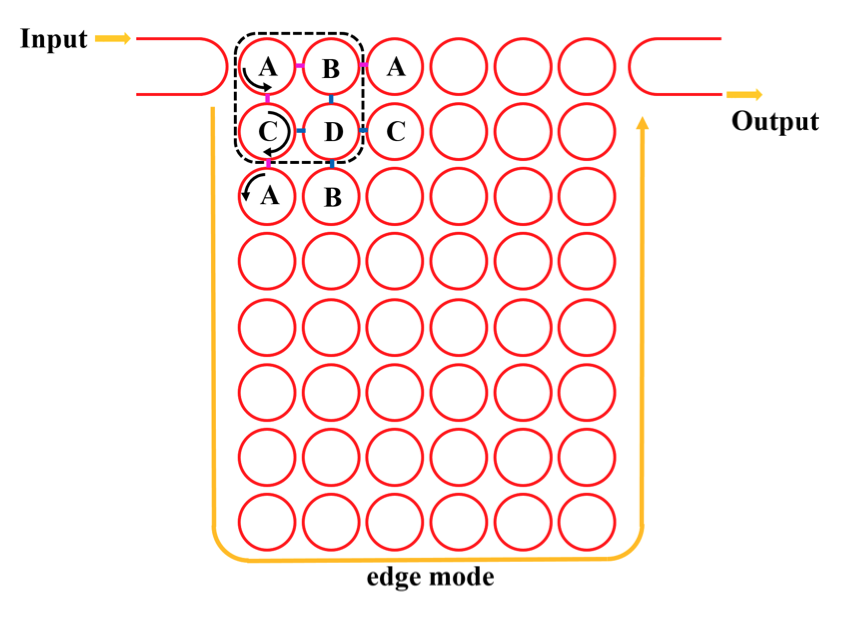
|
Hanfa Song, Haozhu Wang , Vien Van Journal of Lightwave Technology, 2022 paper We provide an analytical approach for evaluating the robustness of photonic integrated circuits. The method is verified by genetic algorithms. |
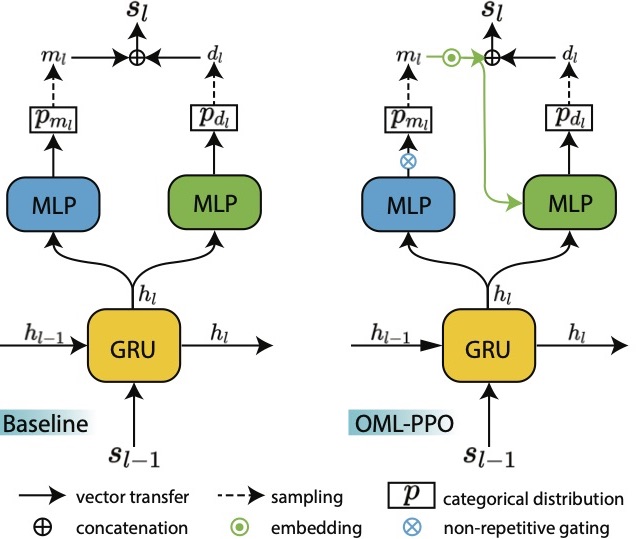
|
Haozhu Wang , Zeyu Zheng, Chengang Ji, L. Jay Guo Machine Learning: Science and Technology, 2021 paper/ code/ abridged NeurIPS workshop version/ Training a novel sequence generation network with Proximal Policy Optimization for automatically discovering near-optimal optical designs. |
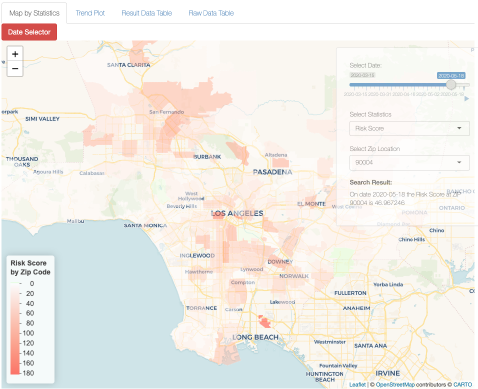
|
Litian Zhou, Wenxue Li, Zhangxing Bian, Yuxuan Cao, Xinyu Li, Weixiao Wang, Zixian Ma Junhwan Kim, Zijin Chu, Yuxi Xie, Yueze Song, Chaoyi Wang, Ruopeng Wang, Linh Tran Haozhu Wang*, L. Jay Guo* RMDS COVID-19 Challenge, 2020 (*: correspondence) report Apply LSTM and LR models for spatio-temporal COVID-19 risk prediction. |
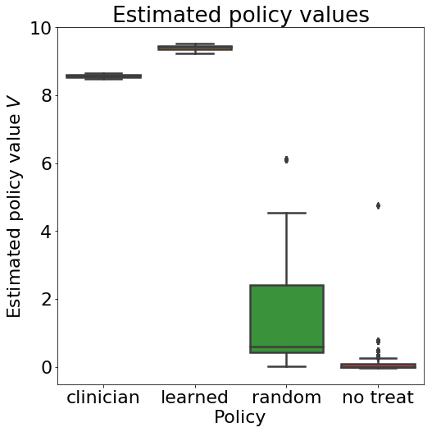
|
Erkin Ötleş* Haozhu Wang *, Suyanpeng Zhang, Brian Denton, Jenna Wiens, Jon Seymour Machinet Learning for Healthcare (clinical abstract), 2019 (*: equal contribution) report Apply Q-learning to insurance claim data to learn near-optimal dynamic treatment regimes. |

|
Jiaxuan Wang, Jeeheh Oh, Haozhu Wang , Jenna Wiens KDD, 2018 paper/ code Expert-yielded-estimates regularizer for incorporating expert knowledge into linear models. |
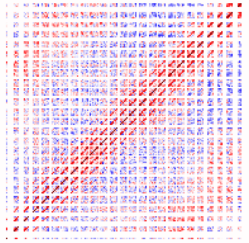
|
Dejiao Zhang*, Haozhu Wang *, Mario A.T. Figueiredo, Laura Balzano ICLR, 2018 (*: equal contribution) paper/ code Group-ordered-weighted lasso (GrOWL) for deep model compression. |
|
|

|
EECS 442 Computer Vision (F20), Prof. Andrew Owens
Graduate Student Instructor EECS 504 Fundations of Computer Vision (W20), Prof. Andrew Owens Graduate Student Instructor EECS 545 Machine Learning (F17), Prof. Mert Pilanci Graduate Student Instructor |
|
|
| Conference review: | ICLR'22-23,ICML'22-23, NeurIPS'20-22, AutoML-Conf'22, MLHC'18-22, AMIA Annual Symposium'20-22 |
| Journal review: | Journal of Physics Communications, AIP Advances |
| Workshop review: | NeurIPS'20-22 Meta-Learning Workshop, NeurIPS'21-22 Machine Learning and the Physical Sciences Workshop, ICML'22 Pre-training Workshop |
|
|
|
The source code of this website is from Jon Barron. (last update: Jan 2024)
|
